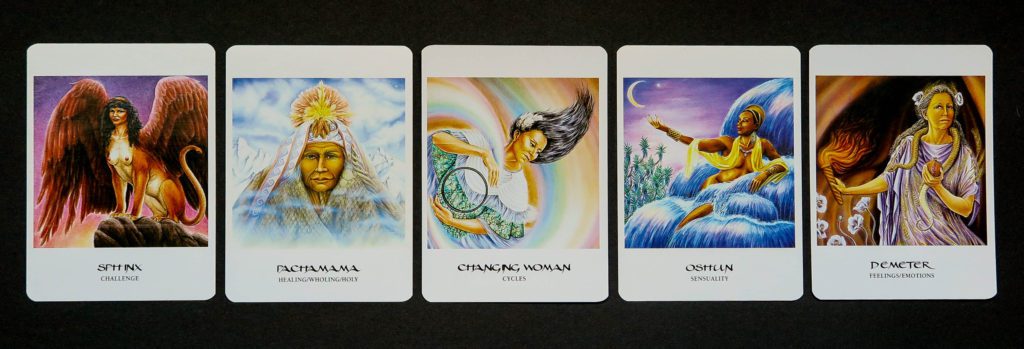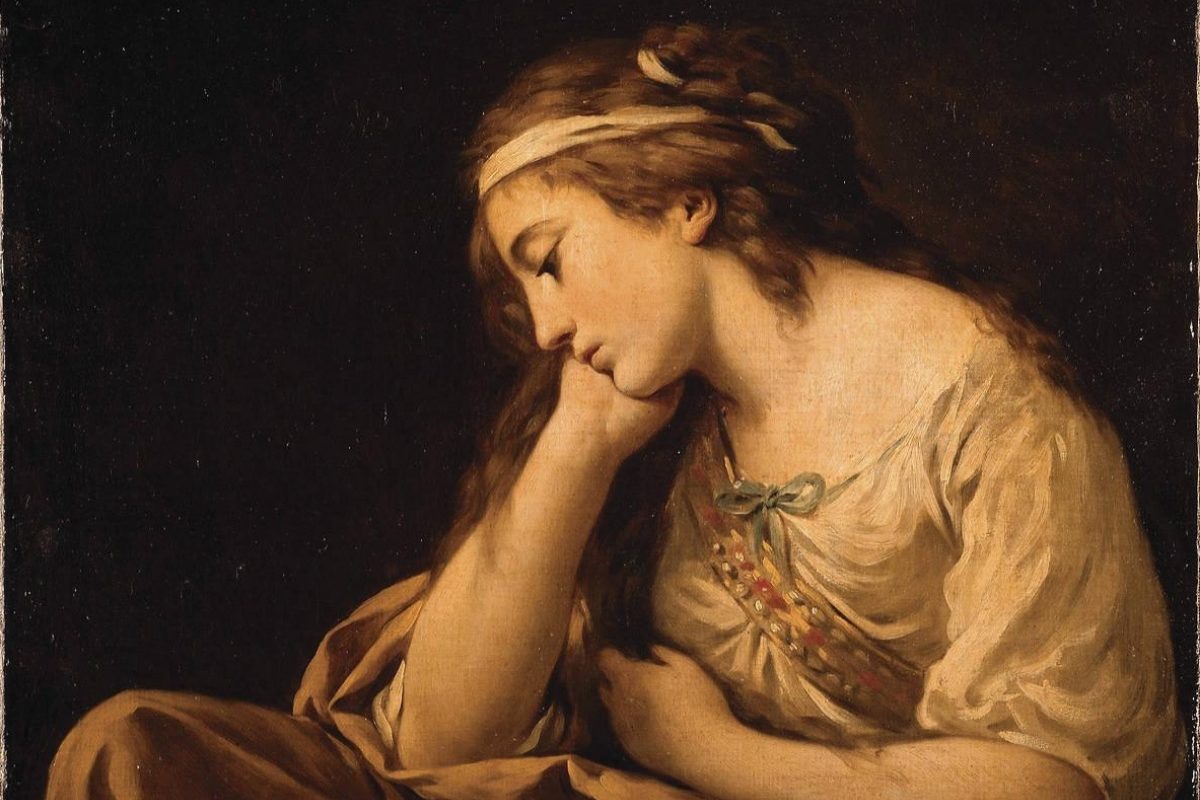I’ve been feeling melancholic this week, and I can’t explain why. As the German writer Heinrich Heine wrote, “I do not know what haunts me, what saddened my mind all day.” In this entry, I explore melancholy and share a Goddess Oracle spread that guided me as I surfaced from it.
Moody is a word that has been often used to describe me. I may be astrologically predisposed to it. I’m a Sagittarius with a Cancer Moon. When I’ve calculated the balance of elements in my natal chart, the results show that I have a more or less equal distribution of Fire and Water (sometimes more water) and that Earth and Air are incredibly underrepresented. So, melancholy and I have been well acquainted for many years. It’s my poor watery heart.
It’s important to clarify that I have never lived with depression. Although melancholy is sometimes used as a synonym for depression, like sadness, melancholy is a commonly experienced feeling that should not be equated with clinical depression.
A very brief history of melancholy
Melancholia comes from the Greek meaning ‘black bile’. It’s one of the four temperaments (sanguine, choleric, melancholic, and phlegmatic), which some psychological personality type systems still refer to. These are rooted in humourism, a system of pre-modern medicine adopted by Ancient Greek and Roman physicians and philosophers. They believed that the four humours (blood, phlegm, yellow bile, and black bile) needed to be strong and balanced for a healthy body.
According to the Encyclopédie, published in France between 1751 and 1772, melancholy was caused by “grief, pains of the spirit, passions, as well as all the love and sexual appetites that go unsatisfied.” Melancholy was thought to cause depression, aches and pains, delirium, cancer, and problems with the spleen, which was thought to secrete black bile.
While I associate my melancholia with the dreamy, sentimental, watery parts of me, melancholy has different correspondences. The properties of the four humours correspond to the four seasons and elements:
- blood, hot and wet, predominates in spring and the element air
- yellow bile, hot and dry, in summer and the element fire
- black bile, cold and dry, in autumn and the element earth
- phlegm, cold and wet, in winter, and the element water
This theory of the four humours dominated Western medicine until the late 1500s.
The artistic cult of melancholia
In the 16th century, a literary and artistic cult around melancholia emerged in Europe. Melancholy becomes associated with intellectual brooding, creative despair, spiritual contemplation, and “abnormal beliefs”. It makes a lot of sense to me. During periods of inspired misery in my early 20s, I read Robert Burton’s The Anatomy of Melancholy and Goethe’s The Sorrows of Young Werther. This novel catapulted Goethe into literary celebrity and caused “Werther Fever”, young European men dressed in Werther’s clothing style.
Melancholy characterizes those with a superb sense of the sublime.
Immanuel Kant Tweet
I’ve always liked my melancholy. I’m generally cheerful and pursuing activities that bring me joy, but I’m comfortable being idle with my pensive sadness and seeing what can emerge from that. I don’t need to put on a smile, nor do I feel the need to climb out of it. I know it will pass. My husband is perplexed by my ability to sit or lay in bed quietly for hours.
A Goddess Oracle spread

I felt scattered as I emerged from my melancholy. I’ve been getting my work and personal projects done but have felt tired and pulled in different directions. Earlier this week, I dreamed of a Goddess Oracle spread and found it very helpful to pull me back together. So, I thought I’d share it.
The spread is simple. You draw five cards to explore what goddess or goddess energy you could tap into for the mind, heart, body, spirit, and environment. Rather than drawing all the cards, I like to shuffle, ask one question, and draw one card at a time. I used the Goddess Oracle deck by Amy Sophie Marashinsky and illustrated by Hrana Janto, one of my oracle decks of 2021.
Here’s an example of how a reading could go. Let’s call the seeker Alice, a woman in her mid-50s with a job she’s satisfied with. Alice she feels like her life is stagnant at the moment. She’s bored and not sure where to go.

What goddess or goddess energy could Alice invoke to take better care of her mind or mental health?
The Sphinx represents a challenge and suggests that Alice needs intellectual stimulation. She could take on a new professional or personal project, take a class, start a new hobby, or perhaps face a challenge she’s been avoiding.
What goddess or goddess energy could Alice invoke to take better care of her heart or emotional wellbeing?
Pachamama reminds Alice to spend time in nature, which research has shown can help relieve stress and improve wellbeing. Alice needs to nurture her connection to Mother Earth and perhaps examine her relationship with food as well.
What goddess or goddess energy could Alice invoke to take better care of her body?
Changing Woman reminds Alice to honour her body, cycle, and unique process as she ages and moves towards menopause and to celebrate the wisdom she’s accumulated in her life.
What goddess or goddess energy could Alice invoke to take better care of her spirit?
Oshun reminds Alice to play with her senses, respect her body, have fun, and enjoy her sensuality.
What goddess or goddess energy could Alice invoke to better care for her environment?
Demeter helps Alice explore her physical landscape, discover what’s missing, and bring things together. She can also teach Alice how to acknowledge, accept, and express complicated feelings and manage emotional turmoil.
To summarise, Alice needs a challenge. The body is a common theme in her reading, and that challenge could involve physical activities such as hiking, dance, or yoga. As she enters menopause, she needs to remain connected and honour the wisdom of her body and the emotions that come with that life transition.
I hope you find this Goddess Oracle spread helpful.

